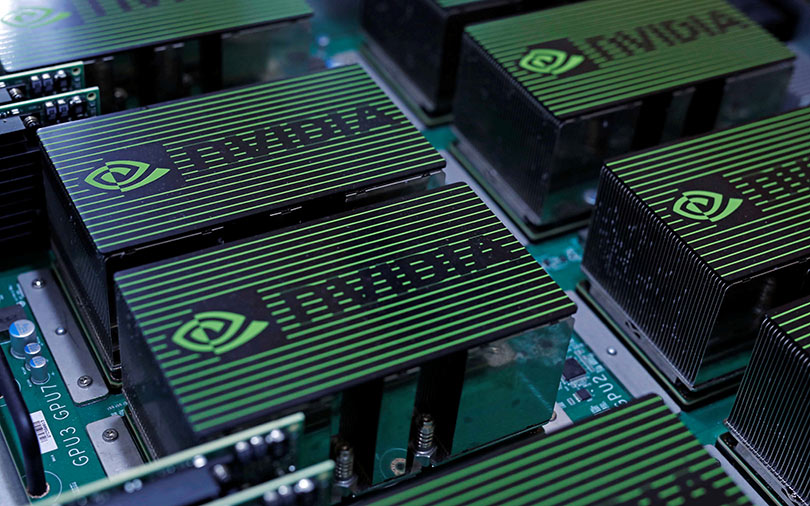
Nvidia partners Arrow Electronics for AI computer geared towards autonomous machines


Chipmaker Nvidia Corp. has partnered US-based Arrow Electronics for an artificial intelligence (AI) computer to power up autonomous machines, robotics and edge computing.
Called Nvidia Jetson AGX Xavier, the new computer is expected to be 20 times faster as well as 10 times more energy efficient than its predecessor Jetson 2.
In this partnership, Nvidia looks to deploy its AI across Arrow’s huge clientele spanning industry, logistics, smart cities and healthcare.
The partnership also assumes significance as the edge computing and autonomous vehicle markets are expected to grow fast in the coming years.

While Research and Markets puts the global edge computing market at $20,495.24 million in 2026, growing at a compound annual growth rate (CAGR) of 11% from $7,983.61 million in 2017, Infoholic Research says worldwide autonomous vehicles market will hover at $126.8 billion in 2027, growing at a CAGR of 39.6% from 2017 onwards.
"We are entering a new era of intelligent machines that will supercharge industries from manufacturing to healthcare," said Deepu Talla, vice-president and general manager of autonomous machines at Nvidia.
He added that Xavier comes with a small computer module capable of up to 32 trillion operations per second and it delivers the processing capability of a powerful workstation, although it fits in the palm of your hand.

“Xavier also supports a full software stack for developing and deploying AI applications through the Nvidia JetPack SDK (software development kit), which includes the latest versions of CUDA, cuDNN and TensorRT,” he added.
Several Japanese manufacturers such as Fanuc, Komatsu, Musashi Seimitsu, Kawada Technologies and Yamaha have adopted Xavier, the company said.
The firm added that Yamaha Motor is expected to develop Xavier-powered unmanned ground vehicles and drones to efficiently spray farmland, pick fruits, and transport harvested crops and equipment.

“The company expects to begin testing these devices in 2019, with the goal of a public launch shortly afterwards,” Nvidia said.
In addition, Yamaha Motor will add Xavier for a fleet of autonomous last-mile vehicles to transport people, and for marine autonomous vehicles for deep-sea exploration and automated sailing.
Nvidia also said that it is launching its TensorRT hyperscale platform, based on AI, which provides inference accelerator for voice, video, image, and recommendation services.

The company has also come out with a new platform called Clara for medical device makers aimed at integrating AI with medical devices.
Nvidia said the platform was aimed at helping 400 startups in the healthcare devices space.
